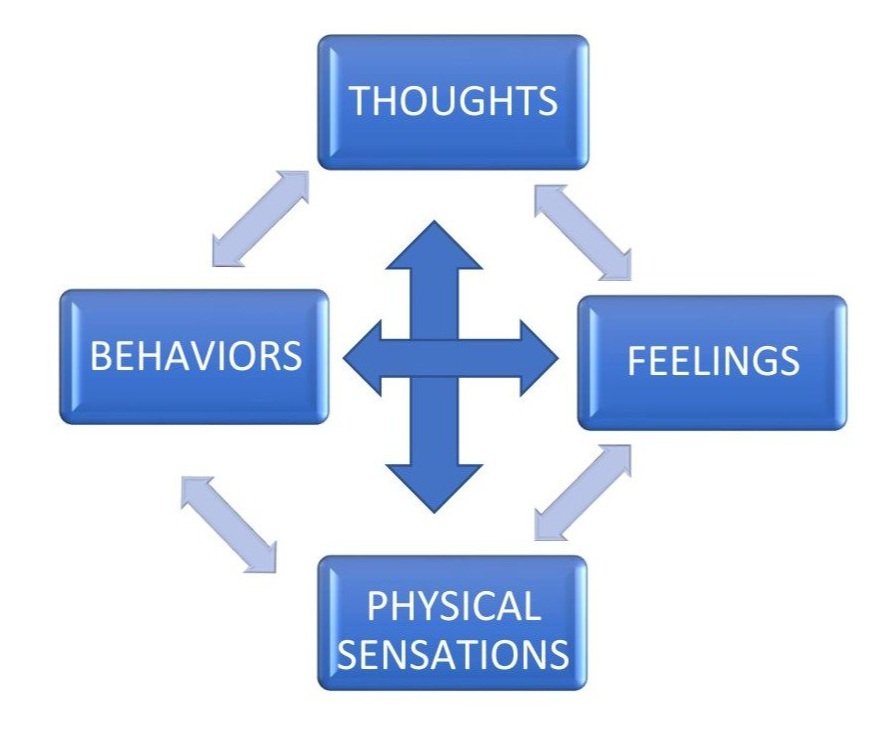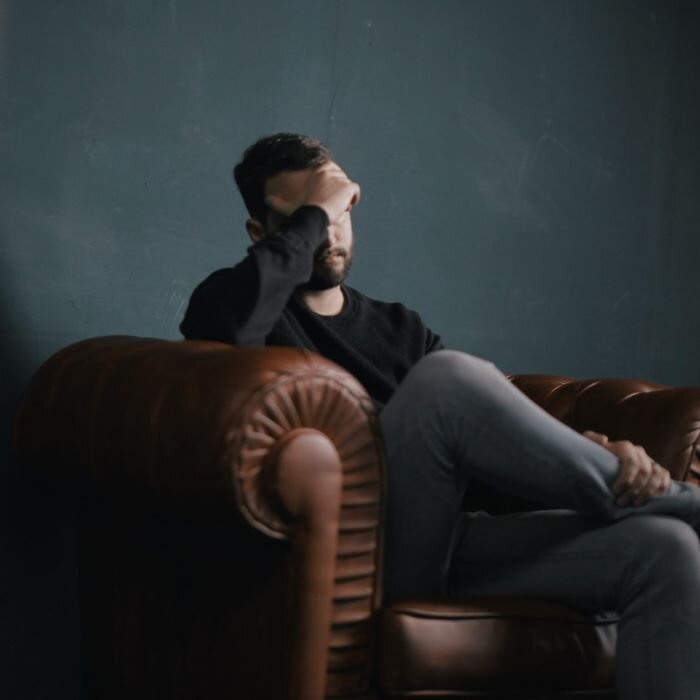
Blog
Anxiety in Children and Adolescents: Parents as Agents for Change
As parents, we want to do everything in our power to decrease our child’s anxiety. But, what if you could help your child without even having him or her in therapy? What if you could decrease your child’s anxiety by changing your own behaviors? That is exactly what happens in the SPACE treatment program.
Anxiety 101: Tips and Tricks for Better Understanding and Identifying Your Anxiety
Anxiety disorders are the most prevalent mental health condition among adults in the United States – an estimated 19.1% of adults have had an anxiety disorder in the past year. Given that anxiety is universal, how can you better understand your symptoms?
Chronic Pain and Anxiety: Breaking the Cycle
For many individuals, chronic pain is perpetuated by an ongoing cycle of fear and avoidance. Here, we provide evidence-based strategies for breaking out of the fear avoidance cycle and re-engaging in life.
Chronic Pain and Anxiety: The Fear Avoidance Model
In this two-part series, we introduce a chronic pain model that explores the connection between chronic pain and anxiety. We also share research-based tips for how to start breaking out of the chronic pain cycle.
Pandemic Parenting: Looking Ahead
The anxieties & stresses of this pandemic are unique. How do we support & respond to our children? Join Rabbi Lisa Greene from North Shore Congregation Israel, Ellen Sachs Alter, Phd., a licensed clinical psychologist, and Jennifer Welbel, LCPC, owner of the North Suburban Center for Anxiety as we provide guidance on this challenging topic.
The North Suburban Center for Anxiety is Hiring!
The North Suburban Center for Anxiety is seeking a fully licensed therapist to join our growing practice.
Our Stay-At-Home Summer
Join CATCH (Community Action Together for Children’s Health) and The North Suburban Center for Anxiety as I “provide quick answers to big questions” in their new video series, LEARN FROM EXPERTS.
Let's Talk About Anxiety and Teens
Tune into my conversation with Anna Marcolin, The Real Therapist, where I answer her questions about anxiety and today’s teens.
Misophonia: Why Certain Sounds are So Irritating
It’s not uncommon to hear people complaining about noisy chewers or pen clickers. However, for a handful of individuals who suffer from Misophonia, these sounds are much more than a little annoyance. Instead, the sounds provoke intense emotional distress and behavioral responses, such as avoidance.
Emetophobia 101: A Guide to Understanding the Fear of Vomiting
No one likes throwing up. However, for many individuals, the fear of vomiting is so excessive and anxiety-provoking that it interferes in one’s daily life. When this happens, individuals may be diagnosed with emetophobia (a.k.a., the fear of vomiting).
You are not alone: The most common questions (and answers) about postpartum depression
For many new moms, the time during pregnancy and following childbirth is a period of excitement and happiness. However, for a lot of mothers, this period is dominated by intense feelings of sadness, anger, anxiety, and irritability. Here, some of the most common questions and answers about postpartum anxiety and mood disorders.
The Do's and Don'ts of Parenting an Anxious Child
It is impossible and counterproductive to shield and protect your child from every anxiety provoking or distressing situation. Instead, as parents, the best thing you can do is to help your child confront their fears and worries and, in turn, build their confidence that they can effectively cope with and manage distressing situations.
“Help! I Can’t Stop Pulling Out My Eyelashes”: Why Hair-Pulling is So Much More Than a Bad Habit
For a handful of individuals, skin-picking and hair-pulling behaviors are not just habits or normal grooming behaviors. Instead, they are complex disorders that occur frequently enough to cause damage to parts of the body and to lead to significant distress.
The Impact of Social Media on Mental Health
There has been a lot in the news recently about the relationship between social media and youth’s mental health. Many parents and educators are worried about, “How much time is too much time?” and “What is the impact of screen time/social media?” Here, an easy to understand breakdown of the research and recommendations for families.
Set SMART Goals Instead of New Year's Resolutions
The beginning of a New Near is a time of reflection and resolution setting. However, more than half of New Year’s resolutions fail. Here’s how to set realistic and attainable goals for the New Year.
How Gratitude Can Make You Happier
During the holidays, we are told (via social media, television, newspapers, etc.) that we should take time to reflect on what we are grateful for. But, what does gratitude really mean, why is it important, and how do we express it?
How to Manage Fear in Today's World
Regardless of one’s religious or political orientation, many report increased fear for our safety, fear for our country, and fear for the future. Fear is a natural and normal response to perceived danger. It is our body’s fight/flight reaction, and it can be protective. However, a constant state of fear is not sustainable (or productive). So, how do we learn to manage our fears?
Debunking the Biggest Myths About OCD
The phrase, “I’m so OCD about….” is constantly thrown around in pop culture. Typically, the individual with OCD is seen compulsively washing their hands, being obsessive about neatness, or excessively cleaning. However, what is meant to be a lighthearted joke or reference ends up contributing to a significant misunderstanding of the disorder.
5 Tips for Managing Back to School Anxiety
As the summer winds down and the school year approaches, both parents and kids alike begin to experience anxiety. Here are five tips to help ease the transition back into the new year.
The Vicious Cycle of Reassurance Seeking
Why reassurance seeking is so addictive and how to reduce your reliance on it




















